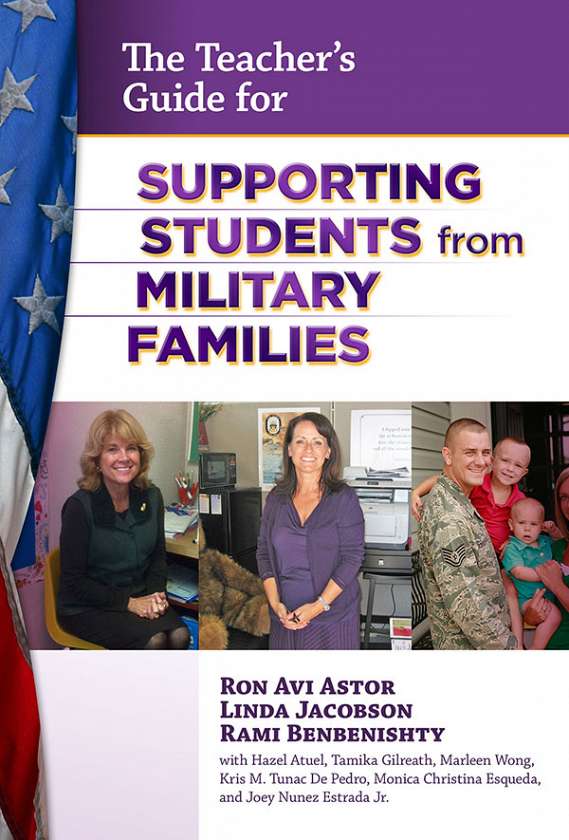Professors: Request an Exam Copy
Print copies available for US orders only. For orders outside the US, see our international distributors.
Ron Avi Astor, Linda Jacobson, Rami Benbenishty
Publication Date: September 28, 2012
Pages: 128

While it is true that children from military families live unique and interesting lives, it is also true that they face many challenges and special circumstances that civilian children and families don’t experience. These can include gaps in school attendance and learning due to frequent moves, being separated from a parent who has been deployed, and a sense of isolation in the midst of a civilian community. This comprehensive and evidence-informed guide introduces pre- and inservice teachers to this population and provides essential tools to help minimize the impact of military life on student learning.
Written in an engaging style by experts in the field, this guide provides strategies and classroom practices to support these students and address issues such as:
It shows how practices already being used in your school can be adapted to ease the transition for military students, and it also introduces original strategies, such as:
Teachers College Press also publishes guides written specifically for administrators, pupil personnel, and parents. All royalties from the sale of these books are being donated to military children’s educational causes.
Ron Avi Astor is the Richard M. and Ann L. Thor Professor in Urban Social Development at the University of Southern California (USC) School of Social Work and Rossier School of Education. He is the principal investigator of Building Capacity in Military-Connected Schools, a consortium partnership involving USC and eight Southern California military-connected school districts. Linda Jacobson is the editor and writer for the Building Capacity project in the School of Social Work at USC. Rami Benbenishty is a professor at Luis and Gaby Wiesfeld School of Social Work at Bar Ilan University.
“I am grateful to the USC Building Capacity team headed by Ron Avi Astor for developing this exceptional resource and attuning it specifically to the needs of both K-12 and higher education professionals.”
—Mary M. Keller, Ed.D., President and CEO, Military Child Education Coalition
“Preparation programs should consider this guide as a key component of their curriculum to prepare incoming teachers, counselors, principals, and others to work effectively with military-connected students.”
—American Association of Colleges for Teacher Education
“This book offers the most up-to-date, research-based suggestions on how to improve the educational outcomes for children with parents in the military. Some of the suggestions reflect best practices for all children in any school. Other suggestions are specific for dealing with military families.”
—William G. Tierney, Wilbur Kieffer Professor of Higher Education, University of Southern California
Professors: Request an Exam Copy
Print copies available for US orders only. For orders outside the US, see our international distributors.